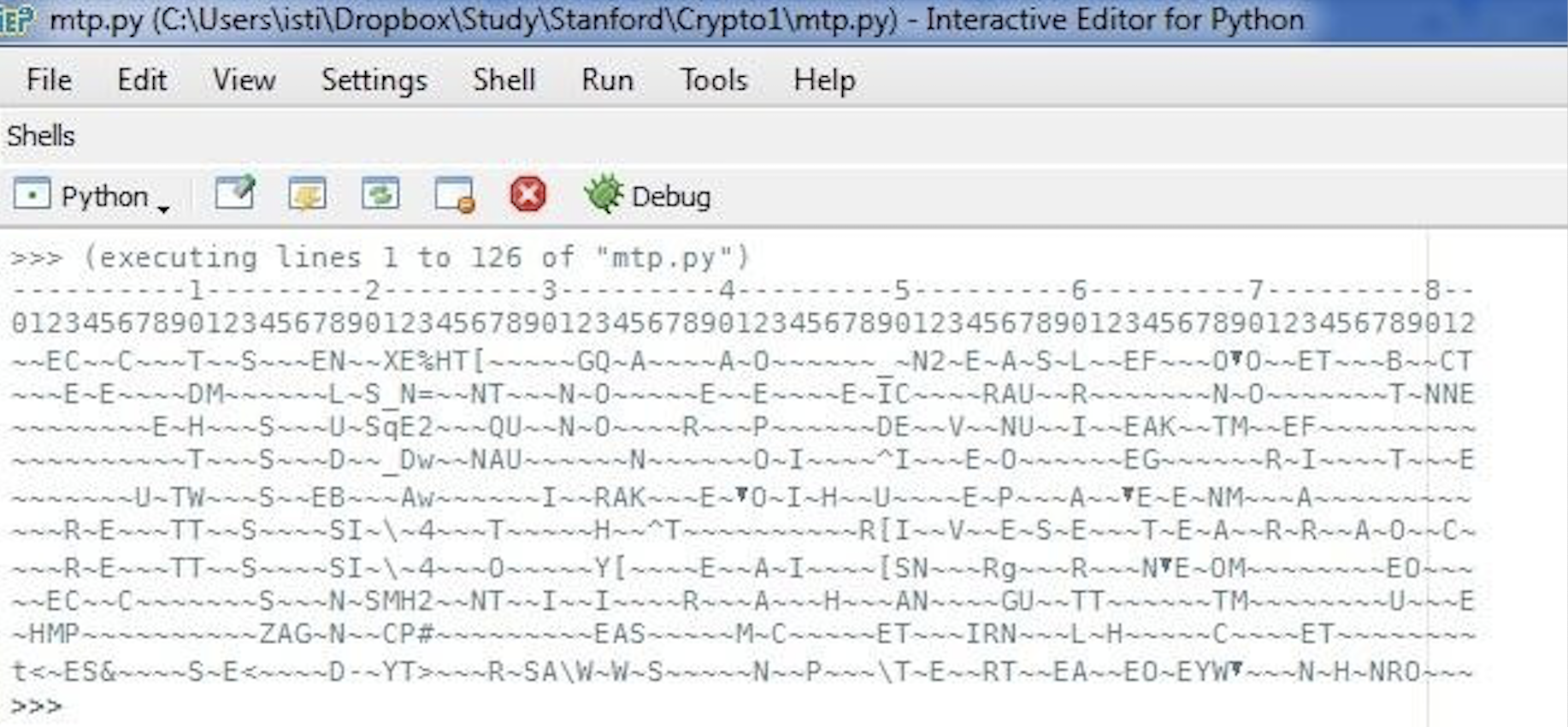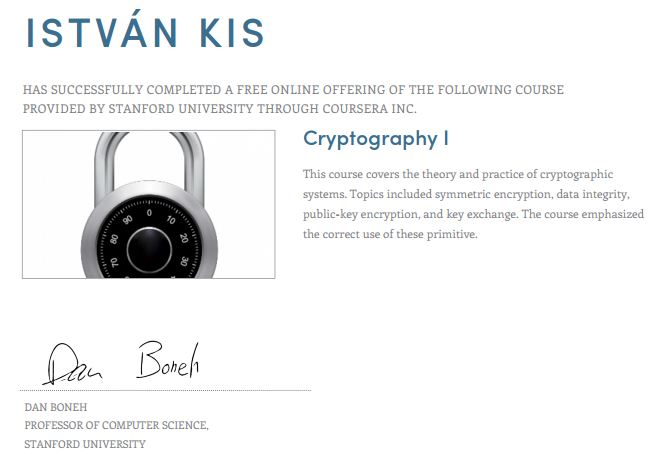Following the ethical hacking path I started to move on earlier by myself, applied for one of the first Stanford’s online courses half year ago: Cryptography 1 made by Dan Boneh, professor of Stanford University. As he mentioned, the syllabus is based on the official offline class, so it seemed extremely interesting to me, and also a significant challenge.
 First homework at 20%, cracking 10 short encrypted messages, same one-time pad
First homework at 20%, cracking 10 short encrypted messages, same one-time pad
To successfully complete the course, you need to catch 50% of the possible collectible points, which basically means homeworks and assignments. These are weekly, sometimes bi-weekly allocated, very interesting tasks, which you are able to understand the topic and get hands-on experience with.
Cryptography is an indispensable tool for protecting information in computer systems. In this course you will learn the inner workings of cryptographic systems and how to correctly use them in real-world applications. The course begins with a detailed discussion of how two parties who have a shared secret key can communicate securely when a powerful adversary eavesdrops and tampers with traffic. We will examine many deployed protocols and analyze mistakes in existing systems. The second half of the course discusses public-key techniques that let two parties generate a shared secret key. Throughout the course participants will be exposed to many exciting open problems in the field and work on fun (optional) programming projects. In a second course (Crypto II) we will cover more advanced cryptographic tasks such as zero-knowledge, privacy mechanisms, and other forms of encryption. /Course summary on Coursera/
I expected an average quality from a free online course, something like 4 of 10, and also believed, that Stanford is a 10 of 10 in being great (engineering) school. I was curious, how these two seemingly opposite prejudices met, and the answer is here: extremely wonderfully. I had to fight with every assignments, not much, but enough, enjoyed all of them, never were boring. I won’t lie to you: there were slides, which I had to check twice, while I was learning. Okay, maybe four times, sometimes six. My point is, it’s not a course, which you run through, and may also require to have some preliminary study in mathematics (nothing more than a solid high school knowledge) and analytic skills.
 State of Accomplismhent
State of Accomplismhent
I can encourage you to take this class with good hearth, if you already accepted that writing a crypto library is not a senior developer-only thingie, but more like a complex mathematician task, and you want to understand deeply, why.
